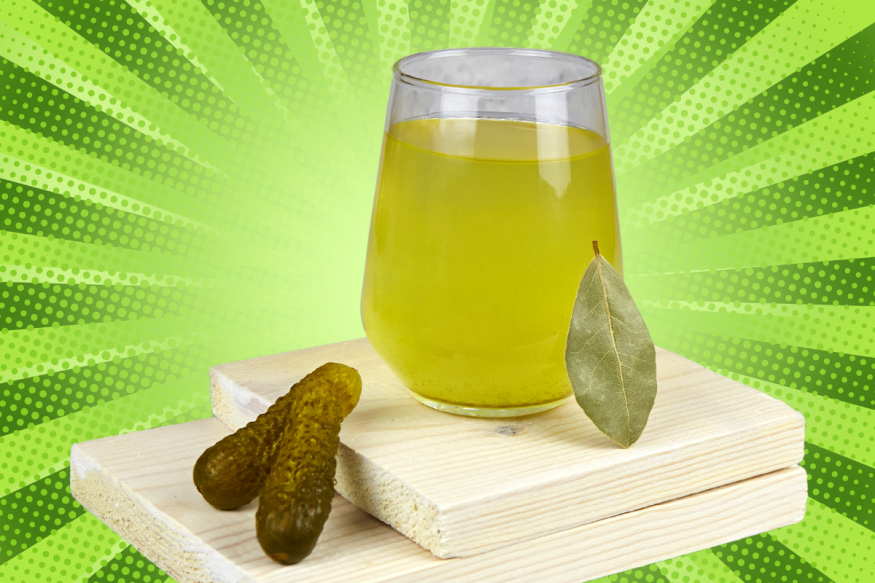
Pickle juice has become a surprising health trend, particularly among athletes. But is there any truth to the supposed benefits of drinking pickle juice (like cramp relief and gut health), or is it just a fad? Let's delve into the science behind the fad!
Does Pickle Juice Really Relieve Cramps?
One of the main reasons pickle juice has gained popularity is its high concentration of electrolytes. Electrolytes are minerals, like sodium and potassium, that play a crucial role in muscle function. The theory goes that during exercise, we sweat out electrolytes, leading to imbalances that can contribute to muscle cramps. Replenishing these lost electrolytes with pickle juice, could be a quick route to cramp relief. Or so the thinking goes.
What Pro Athletes are Pro Pickle Juice?
This potential cramp-fighting power is why many athletes have embraced the pickle juice craze. New Jersey Devils hockey player Blake Coleman is a self-proclaimed "pickle juice guzzler," while tennis star Frances Tiafoe credits the beverage with helping him power through a grueling Australian Open match.
What The Science Says
However, the science behind pickle juice and cramps offers mixed results. Some studies suggest it might shorten the duration of cramps, while others find no significant difference compared to a placebo. The question remains - do the benefits come from the electrolytes or is something else at play? The vinegar content in pickle juice might trigger a reflex that eases muscle tension, but more research is needed to crack the code.
Other Potential Benefits Of Pickle Juice
While the cramp-fighting claims hold the most intrigue, there are other potential benefits of drinking pickle juice being explored. The high concentration of dill, a natural source of antioxidants, might offer some anti-inflammatory properties. Additionally, the fermentation process used to create pickles produces probiotics, which can contribute to gut health.
Things To Consider Before You Chug
Before you down a glass of pickle juice like a post-workout sports drink, there are some important points to consider. Dehydration is a far more common culprit behind cramps, and plain water is always the best first line of defense. Additionally, the high sodium content in pickle juice can be a concern for people with certain health conditions, such as high blood pressure.
The Bottom Line: Experiment with Caution
If you're curious about exploring the potential benefits of pickle juice, it's generally safe to try it in moderation. Listen to your body - if it doesn't agree with you, ditch the brine and stick to water.
Remember:
- Pickle juice is a good source of electrolytes, which may play a role in muscle function and potentially aid in cramp relief (although research is ongoing).
- Dehydration is a more common cause of cramps, so prioritize water intake.
- Pickle juice may offer other benefits like gut health due to probiotics and anti-inflammatory properties from dill, but more research is needed.
- Pickle juice is high in sodium, so consult your doctor if you have any health concerns.
© copyright 2024 Food World News, a property of HNGN Inc. All rights reserved. Use of this website constitutes acceptance of our terms and conditions of use and privacy policy.



